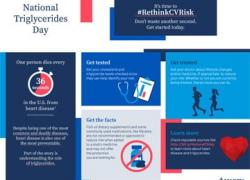Campaign Inspires Interest in Technician Careers
(NewsUSA) - The need for skilled technicians in the workforce continues to rise, but many people are unaware of the degree of financial success and personal satisfaction that skilled technicians find in their careers.
- The need for skilled technicians in the workforce continues to rise, but many people are unaware of the degree of financial success and personal satisfaction that skilled technicians find in their careers.
TechForce Foundation,® a national 501(c)(3) nonprofit, has launched its annual “Because I’m a Tech” campaign in time to align with Labor Day.
The “Because I’m a Tech” campaign is showcased on the TechForce website and social media, and features a diverse group of individuals sharing their stories of successful and secure skilled technician careers. “Because I’m a Tech” includes technicians’ testimonials across industry sectors, from auto, diesel and collision repair to aviation, restoration, marine, welding and motorsports. The personal stories from these technicians highlight the fulfilling lifestyles afforded by a range of tech careers.
The “Because I’m a Tech” campaign also encourages those whose interest is sparked by a skilled technician career to join TechForce, the first and only social network designed and gamified for tech students and professional technicians. The network helps aspiring technicians connect with each other, trade schools, industry and employers, and encourages participants to earn points in contests and games. Students and educators from two schools NASCAR Tech and EVIT have already earned over a million points each.
The free platform fuels participants’ interest and passion while supporting their career journey, and features not only games and prizes, but also information about technician industry events and scholarships, as well as opportunities for training, internships and jobs. Participants can learn more and sign up for TechForce at techforce.org/tech.
“As part of TechForce’s workforce development initiative to Power the Technician WorkforceTM, ‘Because I’m a Tech’ showcases the attractive lifestyle and secure economic potential of this profession. These careers are no longer ‘blue collar,’ but ‘new collar,’ high-tech and in high demand,” says TechForce CEO Jennifer Maher. “Thousands of technician students, working techs and educators are already taking full advantage of the fun and free resources available in the TechForce career network because it offers what they need to turbo-charge their futures.”
A range of well-known companies have joined the campaign to showcase stories of their successful employees and their passions for the skilled technician profession. Participating companies include Advance Auto Parts, AutoZone, CRC Industries, Ford Motor Company, Pennzoil, Penske Truck Leasing and WD-40 Company. Other advocates for careers in the skilled technician field include TechForce Celebrity Ambassadors Bogi Lateiner, Julia Landauer and The Humble Mechanic.
Participants earn points and prizes by accessing training, games, events and more. So far in 2022, TechForce participants have been hosted at major racing events and exclusive VIP experiences, received hundreds of thousands of dollars in scholarships and grants and earned prizes including tools, training and gift cards from TechForce partners.
Notably, a successful skilled technician career is not limited by age, gender or ethnicity. In fact, more than 30 percent of active participants in TechForce are women, a demographic much needed in the profession. Women only account for 3 percent of working technicians. To further encourage women with interests in skilled technician careers, the TechForce website includes a weekly feature, #womentechs-rock, that showcases women in successful skilled technician jobs, who share their stories in short video interviews.
For more information, visit TechForce.org/Tech, and follow TechForce on TikTok, Facebook, Instagram, Twitter, LinkedIn and YouTube.



 - Have you ever shopped at someone’s personal online store and thought, “I could do that”? In the wake of the pandemic, more people are reinventing their work lives and choosing to follow their passions. And the ever-expanding world of e-commerce makes it easier than ever to turn your pastime into a profit.
- Have you ever shopped at someone’s personal online store and thought, “I could do that”? In the wake of the pandemic, more people are reinventing their work lives and choosing to follow their passions. And the ever-expanding world of e-commerce makes it easier than ever to turn your pastime into a profit. 
 - Whether you are a recent college graduate, a grad student in a new city or a young professional shifting gears into a new job, finding your first home as an independent adult can seem daunting, but a few key points can put you on the path to your own place.
- Whether you are a recent college graduate, a grad student in a new city or a young professional shifting gears into a new job, finding your first home as an independent adult can seem daunting, but a few key points can put you on the path to your own place. 
 - The most-anticipated match of the club soccer season approaches, as Liverpool takes on Real Madrid in the Champions League Final, May 28th at the Stade de France. Combined, these two have won the Champions League an astounding 19 times.
- The most-anticipated match of the club soccer season approaches, as Liverpool takes on Real Madrid in the Champions League Final, May 28th at the Stade de France. Combined, these two have won the Champions League an astounding 19 times. - (NewsUSA) -Despite being recognized as one of the most valuable assets in an organization, corporate data remains one of the least measured or understood. While decision makers have more access to data than ever before, there's little way to make sense of it. New research delves into the difference between executives who are data-driven, and those who are just data-saturated.
- (NewsUSA) -Despite being recognized as one of the most valuable assets in an organization, corporate data remains one of the least measured or understood. While decision makers have more access to data than ever before, there's little way to make sense of it. New research delves into the difference between executives who are data-driven, and those who are just data-saturated. - Snibble, a next-generation social video platform that targets today's young adults, is partnering with NewsUSA TV to expand and cross-promote content and linear streaming in the U.S. and Canada.
- Snibble, a next-generation social video platform that targets today's young adults, is partnering with NewsUSA TV to expand and cross-promote content and linear streaming in the U.S. and Canada.
 - If your mental image of a robot in the home is limited to Rosie from the Jetsons, it's time to change your perspective.
- If your mental image of a robot in the home is limited to Rosie from the Jetsons, it's time to change your perspective.
 - As the world continues to navigate the COVID-19 pandemic, the role of the internet in our daily lives has grown exponentially. While many trends have come to light, one that stands out is the need for faster internet speeds in regions that have seen an influx of new residents. According to
- As the world continues to navigate the COVID-19 pandemic, the role of the internet in our daily lives has grown exponentially. While many trends have come to light, one that stands out is the need for faster internet speeds in regions that have seen an influx of new residents. According to
 - Every day, data and analytics touch our lives in ways that we can't begin to imagine. As an example, it can be seen when you log on to a video call, pay for your train ticket, or order your cappuccino using your phone. Or view spending trends on your bank account using an app or website. Data analytics are also at work in ways you don't see -- ways that make your life easier, safer, more convenient, and more fun -- especially when it comes to getting where you want to go. Indeed, data analytics reduce your travel time, manage traffic congestion, and create safer and more accessible ways to use public transit.
- Every day, data and analytics touch our lives in ways that we can't begin to imagine. As an example, it can be seen when you log on to a video call, pay for your train ticket, or order your cappuccino using your phone. Or view spending trends on your bank account using an app or website. Data analytics are also at work in ways you don't see -- ways that make your life easier, safer, more convenient, and more fun -- especially when it comes to getting where you want to go. Indeed, data analytics reduce your travel time, manage traffic congestion, and create safer and more accessible ways to use public transit.
 - Online technology has many potential benefits for children and teens, but recent news about online platforms contributing to physical and mental health issues highlight the importance of educating youth about smart internet use and good digital citizenship.
- Online technology has many potential benefits for children and teens, but recent news about online platforms contributing to physical and mental health issues highlight the importance of educating youth about smart internet use and good digital citizenship.



